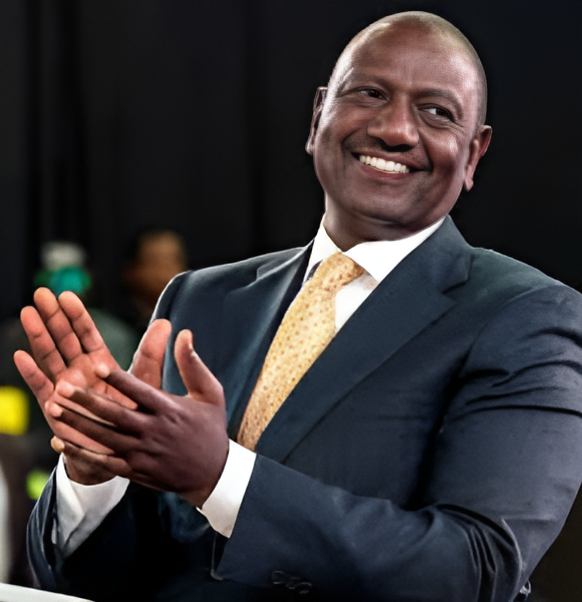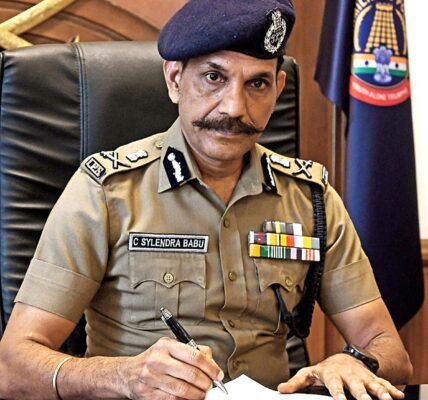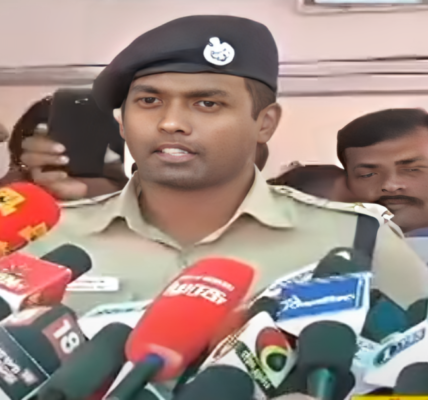Early Life and Education
William Kipchirchir Samoei Arap Ruto was born on 21 January 1967 in Sambut village, Kamagut, Uasin Gishu County, Kenya, to Daniel Cheruiyot and Sarah Cheruiyot. He is a member of the Kalenjin people of the Rift Valley Province.
Ruto began his education at Kamagut Primary School before transferring to Kerotet Primary School, where he sat for his Certificate of Primary Education (CPE). He continued his studies at Wareng Secondary School before proceeding to Kapsabet High School in Nandi County for his Ordinary Level and Advanced Level education.

Ruto then enrolled at the University of Nairobi, where he pursued Botany and Zoology, graduating in 1990 with a BSc. He later earned an MSc in Plant Ecology from the same university. Despite several setbacks, Ruto completed his PhD in 2018, with his dissertation focusing on Plant Species Diversity and Composition of Two Wetlands in Nairobi National Park.
During his time at university, Ruto was an active member of the Christian Union and served as the Chairman of the University of Nairobi Choir. Through his church activities, he met President Daniel arap Moi, who introduced him to politics during the 1992 general elections.
Political Career
Early Political Involvement and YK’92
After graduating in 1990, Ruto worked as a temporary teacher in the North Rift region while actively participating in church activities. His political career began in 1992 when he became the treasurer of YK’92, a youth lobby group campaigning for President Moi’s re-election. During this time, he gained insights into Kenyan politics and is believed to have accumulated wealth.
Following the 1992 elections, YK’92 was disbanded, and Ruto made his first unsuccessful attempts at securing positions within KANU, Kenya’s ruling party at the time.
Member of Parliament (1997-2013)
Ruto ran for Member of Parliament (MP) for Eldoret North in the 1997 general elections, defeating Reuben Chesire, who was Moi’s preferred candidate. His victory earned him political prominence, and he later became KANU’s Director of Elections.
In 2002, Ruto supported Uhuru Kenyatta as Moi’s successor, earning him an appointment as an assistant minister in the Ministry of Home Affairs. Later that year, when senior government officials resigned to join the opposition, Ruto was promoted to Cabinet Minister for Home Affairs. Although KANU lost the 2002 elections, Ruto retained his parliamentary seat.
In 2005, Ruto was elected KANU Secretary-General, and the party opposed the proposed new constitution. Alongside other leaders, he helped form the Orange Democratic Movement (ODM) after the successful opposition to the referendum.
2007 Presidential Elections and Post-Election Violence
In 2007, Ruto vied for the ODM presidential nomination, finishing third behind Raila Odinga and Musalia Mudavadi. He subsequently backed Odinga’s candidacy. The contested presidential election results led to widespread post-election violence, and Ruto was later indicted by the International Criminal Court (ICC) for crimes against humanity. The case was dropped in 2016 due to insufficient evidence.
Ministerial Positions (2008-2011)
Under the Mwai Kibaki and Raila Odinga Grand Coalition Government, Ruto was appointed Minister of Agriculture (2008-2010) and later Minister for Higher Education (2010-2011). His tenure in both ministries was marked by reforms and controversies, including allegations of corruption.
Deputy Presidency (2013-2022)
In 2013, Ruto joined forces with Uhuru Kenyatta to form the Jubilee Alliance. Ruto became Kenyatta’s running mate, and they won the 2013 general elections, defeating Raila Odinga.
During Kenyatta’s presidency, Ruto served as Deputy President and was responsible for overseeing government programs and infrastructure projects. He was re-elected in 2017, but the victory was nullified by the Supreme Court of Kenya, leading to a fresh election, which Kenyatta and Ruto won decisively.
In 2014, while Kenyatta was attending a hearing at the ICC, Ruto served briefly as Acting President.
2022 Presidential Election and Presidency
In December 2020, Ruto launched the United Democratic Alliance (UDA) and ran for President in the 2022 elections. He won the election with 50.49% of the votes, defeating Raila Odinga. Odinga contested the results, but the Supreme Court upheld Ruto’s victory.
Ruto was sworn in as Kenya’s fifth President on 13 September 2022, in a ceremony attended by over 20 heads of state.
Presidency (2022-Present)
As President, Ruto has focused on economic transformation, climate change policies, and international diplomacy. His administration launched the Hustler Fund, a loan program for Kenyan citizens, and proposed privatization of public enterprises to enhance economic efficiency.
Ruto has also made significant diplomatic engagements, including visits to the United States, United Kingdom, and Germany. He has championed Africa’s representation in global governance bodies and advocated for investment-led development.
Controversies
Ruto’s political career has been marred by various controversies, including:
- Land disputes, particularly regarding the Weston Hotel land case and the KPC Ngong Forest land scandal.
- The ICC indictment related to 2007/08 post-election violence, which was later dismissed.
- Allegations of corruption and wealth accumulation.
- The assassination of Jacob Juma, where he was widely linked, though no evidence implicated him directly.
Personal Life
Ruto is married to Rachel Chebet, and they have six children. He is a devout evangelical Christian and a member of the Africa Inland Church. He owns a chicken farm in Sugoi, inspired by his earlier experiences as a chicken hawker.
Honors and Awards
Ruto has received several national and international honors, including:
- Chief of the Order of the Golden Heart of Kenya (Kenya).
- Order of the Green Crescent of the Comoros (Comoros, 2023).
- Order of the Star of Ghana (Ghana, 2024).
- Amílcar Cabral Medal (Guinea-Bissau, 2024).
Legacy and Impact
William Ruto’s rise from humble beginnings to the highest office in Kenya is a testament to his political resilience. His presidency is expected to shape Kenya’s economic, social, and political trajectory in the coming years. His leadership remains both celebrated and scrutinized, as he navigates Kenya’s complex political landscape.





